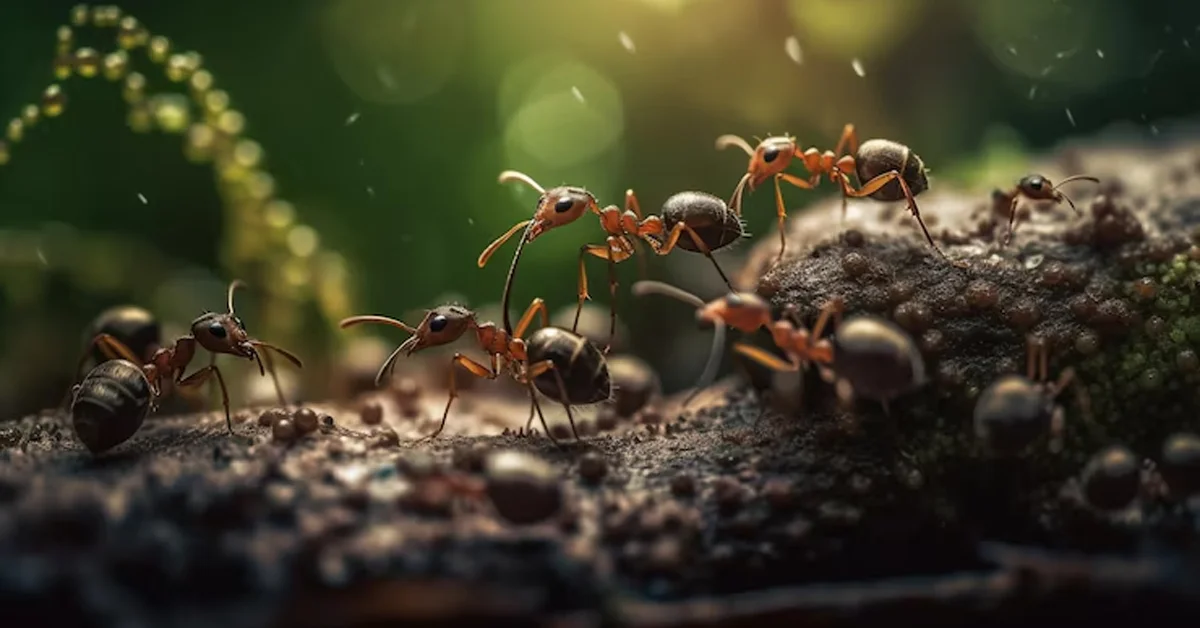Tiny black ants are one of the most common household pests around the world. Although small, they can become a major nuisance due to their persistent nature and ability to quickly infest homes and gardens. Understanding these ants’ behavior, habits, and how to control them effectively is key to preventing infestations and maintaining a pest-free environment.
TRENDING
Bio Resonance Therapy Benefits: Natural Healing Explained
What Are Tiny Black Ants?
Tiny black ants’s are small, usually measuring between 1/16 to 1/8 inch in length. There are many species of black ants, but the most common household invaders include:
Little Black Ants (Monomorium minimum)
Odorous House Ants (Tapinoma sessile)
Black Carpenter Ants (Camponotus spp.)
Despite their small size, these ants play significant roles in ecosystems, but when they enter homes, they become pests.
Quick Facts About Tiny Black Ants
Appearance
Color: Dark brown to black.
Size: Typically very small, often less than 1/8 inch.
Body: Three distinct segments (head, thorax, abdomen), with antennae that bend in the middle.
Behavior
Social insects living in colonies.
Forage for food in groups.
Prefer sugary or greasy food but will eat almost anything.
Habitat
Outdoors: Under rocks, logs, mulch, or soil.
Indoors: Kitchens, bathrooms, and anywhere food is accessible.
Often nest close to food and water sources.
Reproduction
Queen ants lay thousands of eggs.
Colonies grow quickly, making control difficult once established.
Why Are Tiny Black Ants A Problem?
Although tiny black ants’s generally do not bite or cause structural damage (unlike carpenter ants), their presence is a major nuisance. They contaminate food, invade personal spaces, and their trails can be unsightly. Moreover, their ability to rapidly reproduce can lead to large infestations if not addressed early.
Common Signs Of Tiny Black Ant Infestation
Knowing the signs can help catch the problem early:
Visible Trails: Black ants often leave pheromone trails visible as lines of ants moving back and forth.
Ants Foraging: Seeing ants in kitchens or near pet food bowls.
Small Mounds or Nests: Outdoor nests may appear under rocks or mulch.
Ants in Walls or Baseboards: Sometimes ants nest inside walls, causing subtle structural clues.
How Do Tiny Black Ants Enter Your Home?
Through cracks and gaps around windows, doors, and foundations.
Following electrical wiring and plumbing lines.
Carried in on plants, firewood, or used furniture.
Hitchhiking on pets or humans.
Effective Control Tips For Tiny Black Ants
Controlling tiny black ants’s requires a combination of prevention, sanitation, and targeted treatment methods. Here’s a comprehensive guide:
Maintain Cleanliness
Ants are attracted to food and moisture sources. Keeping your home clean deprives ants of their needs.
Clean kitchen counters, floors, and dining areas regularly.
Store food in airtight containers.
Don’t leave pet food out for long periods.
Fix leaky pipes and remove standing water.
Seal Entry Points
Prevent ants from entering by sealing cracks, crevices, and gaps in walls, windows, doors, and foundation.
Use caulk or weatherstripping around windows and doors.
Repair torn screens and seal holes in walls.
Pay special attention to areas where utilities enter the house.
Use Natural Repellents
Several natural substances deter ants without harmful chemicals:
Vinegar: Wipe surfaces with a 50/50 vinegar-water mix.
Lemon Juice: Spray lemon juice around entry points.
Essential Oils: Peppermint, tea tree, and citrus oils repel ants.
Cinnamon and Coffee Grounds: Sprinkle near entry points.
Set Up Ant Baits
Baits are effective because ants carry poisoned food back to their colony.
Use commercially available ant baits designed for tiny black ants.
Place baits along ant trails, near entry points, and where ants forage.
Be patient; baits take time to work but eliminate the colony.
Apply Insecticides Carefully
If infestations are severe, insecticides may be necessary.
Use ant sprays or dust labeled for indoor use.
Apply outdoors around foundation and potential nest sites.
Follow all label instructions to ensure safety.
Regular Inspection and Maintenance
Monitor for signs of ants regularly.
Keep vegetation trimmed away from the house.
Remove debris and leaf litter where ants may nest.
Understanding Tiny Black Ant Species For Targeted Control
Knowing the species can help tailor control strategies.
Little Black Ants (Monomorium minimum)
Very small (1/16 inch).
Prefer sweet foods.
Nests often outdoors, sometimes indoors.
Control with baits and sanitation.
Odorous House Ants (Tapinoma sessile)
Emit a rotten coconut smell when crushed.
Nest indoors in walls or outdoors.
Control with baits and sealing entry points.
Black Carpenter Ants (Camponotus spp.)
Larger than other black ants’s (up to 1/2 inch).
Can damage wood by hollowing it out for nests.
Control requires locating and treating nests.
When To Call A Professional Exterminator
If DIY methods fail or if you have a large infestation, professional pest control can provide:
Thorough inspection and identification.
Specialized treatments.
Long-term prevention plans.
Preventing Future Infestations
Maintain cleanliness and proper food storage.
Regularly inspect your home.
Manage moisture and leaks.
Keep outdoor mulch and vegetation away from foundations.
ALSO READ: Best Essential Oils For Poison Ivy Relief: Natural Healing Tips
FAQs
What is an ant?
Ants are social insects belonging to the family Formicidae. They live in colonies, work collectively, and communicate through pheromones. Tiny black ants are a common type, often found indoors and outdoors.
Can tiny black ants bite or sting?
Most tiny black ants’s do not bite or sting humans, but some species may nip if disturbed.
How fast do tiny black ants multiply?
Ant colonies can grow rapidly; a queen can lay thousands of eggs, and workers mature within weeks.
Are tiny black ants harmful to my home?
While most tiny black ants don’t damage structures, carpenter ants do. Others mostly contaminate food and cause annoyance.
How can I naturally get rid of tiny black ants?
Keep your home clean, use natural repellents like vinegar or essential oils, seal entry points, and use ant baits for effective control.











